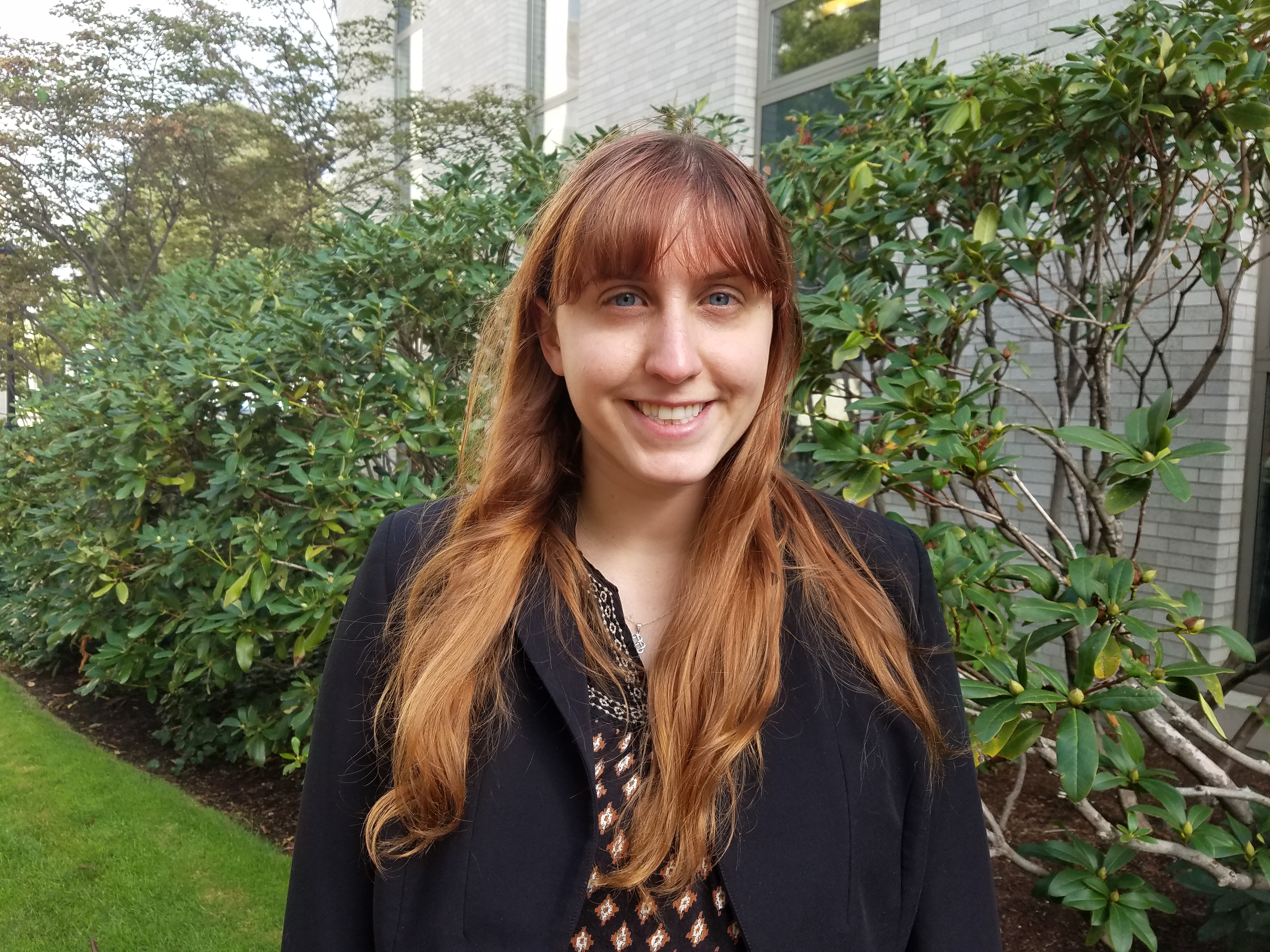Nicole Betz, Psychology PhD candidate, sits down with the College of Science Graduate Program staff to talk about what it’s like to work and study at Northeastern University.
Describe your research.
Broadly, my research investigates how we organize our knowledge about the world, and how this influences our interactions with the world. I study this relationship by looking at knowledge about living things, emotions and social groups.
One of my current research projects that I’m excited about is investigating how people think about political affiliation (republican or democrat), and how our patterns of thinking about political parties may relate to the way that a person is engaged with the upcoming presidential election, such as whether or not they voted in the election and whether or not they seek out information about the presidential candidates.
What is your favorite part about Northeastern?
The undergraduate students at Northeastern are keenly aware of how the materials that they learn in the classroom can be applied to the real world. Northeastern’s emphasis on experiential education really helps to create well-rounded students who continue to impress me with their interesting ideas and amazing experiences.
Why did you choose Northeastern?
I did my undergraduate education at Northeastern, and I also worked as a lab coordinator at Northeastern in Dr. Lisa Feldman Barrett’s Interdisciplinary Affective Science Laboratory for a few years after I graduated. Currently, I am a third year graduate student working with Dr. John Coley and Dr. Barrett. I’ve repeatedly chosen Northeastern to further my education for a number of reasons. Primarily, I have stayed at Northeastern so long because of the people. I have had the opportunity to work with outstanding mentors in the Department of Psychology, and their support and mentorship has been instrumental in my development as a scientist. It is rare to work with faculty members who are powerhouses in their fields, but also take the time to be intimately involved in nurturing new scientists.
In addition to the support of my advisors, the research that I am able to conduct at Northeastern is of great interest to me, and is highly pertinent to a number of real-world phenomena. I feel like much of my labs’ projects are at the cutting-edge of psychological science. It is so important for a scientist to be passionate about the questions their research seeks to answer, and this is what my experiences at Northeastern have given me: a passion for my research.
What are the perks of being a Northeastern graduate student?
The psychology graduate program is very dedicated to allowing its students to focus on research. Compared to other institutions, we have relatively few required courses, and we don’t have qualification exams. This really frees us up to spend more time on our research projects, and to take on some side projects in addition to our Masters or Doctoral theses. This is important for a new researcher, as it helps let them explore different research paths. Our course load also allows us the flexibility to choose to get more involved with teaching, and advanced students have the opportunity of teaching their own class. Combined, the format of the program makes Northeastern a great place to explore your options in academia.
What advice would you give to an incoming graduate student?
Get involved with the Northeastern community. These experiences have been extremely helpful and rewarding to me. By getting more involved, I have learned about great resources that Northeastern offers to students for assistance with teaching (CATLR), grant applications (Research Administration and Finance) and writing (Writing Center). These have enabled me to create opportunities for graduate students to improve their speaking skills by organizing a Graduate Student Speaker Series within my department. There is so much support from the university and from the department that students may not know about, and the best way to learn about these resources is to engage with the community.
What are your plans after degree completion?
I plan to find a position as a postdoctoral researcher where I can continue to investigate how our conceptual knowledge influences our experiences with the world. More and more, I am becoming interested in applying my understanding of the relationship between conceptual knowledge and behaviors/experiences to current, real-world problems.

